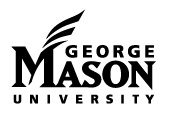This class is closed. Are you interested in the Northern Ireland class in 2018?
Ireland and Northern Ireland: Politicians, Paramilitaries, and Peace
CONF 695/385 3 Credits June 20-28, 2015
$3,890
SPACE LIMITED – APPLY NOW!
Please email the following items to Michelle Everson at meverson@gmu.edu in one single PDF file containing all application materials. The title of this document should be your first and last names (example: “John Smith.pdf”). Your name should appear on each page of your application.
- Your resume (maximum one page)
- A letter of interest explaining why the trip is important to you and your qualifications for participating in an advanced practice course examining sensitive issues (maximum one page)
- Contact information for two references only (name, position, email address, and relationship to you); please note that we will get in touch with you prior to contacting your references
Description
CRDC’s June 2015 course, “Politicians, Paramilitaries, and Peace,” takes students to Northern Ireland and the Republic of Ireland to learn about the linkages between the political and grassroots levels in a conflict that has evolved significantly over the last 50 years but still faces challenges of reconciliation and integration.
The course begins in Dublin, where students will learn about the history of the conflict, including partition of the island and the Anglo-Irish War, through visits to historical sites such as Kilmainham Gaol, a filming location for In the Name of the Father and Michael Collins. In Dublin we will also contextualize the rationale for the signing of the Good Friday Agreement in 1998 by meeting with the conflict resolution unit of the Department of Foreign Affairs. We’ll learn about the development of the unit and its mission of spreading the lessons of the peace process around the world.
We will then travel to Northern Ireland, where we’ll see the impact of partition and witness how Northern Ireland and the Republic developed differently following this key moment in their histories. We’ll examine the linkages between the Civil Rights Movement in the United States and the events of the 1960s in Northern Ireland and visit the peace walls in Belfast to study their relationship to paramilitary groups’ ceasefires. The class will visit the Northern Ireland Assembly at Stormont to hear from political parties and politicians involved in the negotiations of the 1990s and will also hear firsthand accounts from civil society organizations and grassroots organizations, such as women’s groups and ex-combatants’ groups.
In both Belfast and Derry/Londonderry, we’ll examine how the post-conflict scenario evolves and delve into the challenges of a process that is frozen in the period of conflict management rather than moving on to conflict transformation and conflict resolution. Lectures and guest speakers will address the challenges of peacebuilding at an everyday level in interface communities and the realities of life in a polarized, post-ceasefire society. The course will examine how the theoretical works out at the practical level and raise the question of what model of government is best suited to such a society.
Eligibility: This course is open to all Mason and non-Mason bachelors, masters, and Ph.D. students as a 3-credit course, and to non-students as a professional development seminar.
Program Fee: The course fee of $3,890 covers 3 credits, hotel rooms for all nights of the course, 2 meals per day, in-country ground transportation, cultural excursions, entrance fees, and course trainers’ and speakers’ costs. It does not include airfare.
Instructors: The GMU instructor for the course is Dr. Marc Gopin, director of the Center for World Religions, Diplomacy and Conflict Resolution (CRDC) and James H. Laue Professor at the School for Conflict Analysis and Resolution.
The overseas instructors are Dr. William Mitchell and Seán Brennan. Dr. William Mitchell is Project co-ordinator for Action for Community Transformation – The ACT Initiative. ACT is a conflict transformation program which is underpinned by the concept of DDR (Disarmament, Demilitarisation & Reintegration) and is designed to support the transformation and reintegration of former combatants in Loyalist communities. As a former political prisoner who spent 13 years in Long Kesh, Dr. Mitchell has considerable experience engaging former combatants in processes of conflict transformation to aid their reintegration into a post-conflict peacebuilding environment. In completing his PhD, Dr. Mitchell spent 5 years researching the situational motivations of young men engaging in, or resisting, conflict during the most intense period of the Northern Ireland ‘Troubles’, between 1972-75, to produce his doctoral thesis, “Eighteen and a half years old -Ordinary young men – Extraordinary times.”
Seán Brennan is a part-time PhD candidate in the School of Politics, International Studies and Philosophy at the Queen’s University Belfast (QUB). Seán’s research focuses on the challenges loyalist ex-combatants encounter as they attempt to reintegrate into a post-ceasefire society through processes of Disarmament Demobilisation and Reintegration (DDR). As a peacebuilding practitioner, Seán’s work with divided communities precedes the ceasefires, peace accords and modalities of post-conflict peacebuilding, developed in the 1990s. With the award of an MA in Peace and Conflict Studies (University of Ulster) in 1995 Seán drew on normative theories of peace research, developed by Kenneth Boulding, John Wear Burton, Johann Galtung and John Paul Lederach, to design and deliver community relations, community development and peacebuilding programmes for marginalised and disadvantaged communities attempting to take opportunities arising from the peace. From 2004-2013 he worked in North Belfast with a range of community/voluntary, statutory and academic institutes, such as QUB, UCLA, Boston College and Stanford University, to develop peacebuilding programs. In 2008 his QUB-accredited Peacebuilding in Interface Communities program was short-listed for the Times Higher Education Awards. Seán has also worked in a number of contested and post-conflict societies, from Cyprus and Azerbaijan to Poland, Nigeria and Moldova.

